Borrowed Cuttings
Robert Mondavi Winery
Oakville Fumé Blanc 2014
Domaine Henri Gouges
La Perrière Nuits St. Georges 1er Cru Pinot Blanc 2006
crazy story on this "white" Burgundy that geeks love. Many years ago while walking through his vineyards, Henri Gouges noted some vines with white grapes, took some cuttings and grafted them, ultimately making a white wine from grapes now called Pinot Gouges--Pinot Noir has only one gene for color and these vines lost it, making them white. So it is a white or albino Pinot Noir, tastes red but looks white. Couple other producers make it, too. Good, not great wine, though. Fun to blind taste Burg lovers on. — 8 years ago
Woodside Vineyards
La Questa Cabernet Sauvignon 2009
2009 vintage. From Chateau Margaux cuttings planted in 1884. Light/medium body with a long spicy finish. Pretty solid stuff. — 8 years ago
Domaine Mugneret-Gibourg
Vosne-Romanée Pinot Noir 1997
Decanted 2 hours, served at 50 degrees. Deeply forested: damp, moist, like walking in Oregon. There's a lumber component too - the wood comes through. Fresh garden cuttings. Mushrooms of course. Wet tobacco. Background has fresh cut underripe plumb. There's still a sweetness here. Fully developed nose with that's so nice to sit on. Acid dominates the palette with some fruit hiding. Perhaps this is where it's showing that this wine is past its prime. But it's still nice. Finish has really fine tannic structure of medium length and displays some remnants of spice. — 8 years ago
Tablas Creek Vineyard
Paso Robles Vermentino 2014
Did not disappoint. Italian varietal that, if you believe the good folks at Tablas Creek, was sent by an enterprising employee taking cuttings from the Perrin vines to plant in Paso Robles. Crisp summer white. Medium acidity. — 9 years ago
Riverbench Vineyard & Winery
Pommard Santa Maria Valley Pinot Noir 2013
Tonight's bottle hails from Riverbench winery. This one's a Pinot Noir, a Pommard Clone Pinot Noir to be exact. The Pinot Noir grape hails from the great family of Pinot varietals, aka the Gris, the Blanc, the Noir, etc, The Pommard clone has found its way into California vineyards via cuttings from Pinot Noir from the Château de Pommard in France circa the 1940s. The original being the "Clone 4", and then giving birth to a daughter, the "Clone 5". The Pommard Clone 5 has slowly been making a name for itself all along the west coast, from Oregon to Southern California. It tends to deliver a meaty/gamey flavor with pure dark fruit flavors. This vintage shows a wonderful restraint and great balanced structure to deliver a wonderfully light red wine, perfect for any occasion. ~$46 | #riverbench #pinotnoir #pommard
On the eyes: Bright, clear cranberry red, med- stain, med tears, no gas/floc.
On the nose: Earthy, herbaceous, blood orange, and bruléed strawberry. Med alcohol.
On the tongue: Med acid, med tannin, med alcohol, med round body with great balance. Pleasantly tart, slightly floral with bright cranberry and blueberry, and dusty old road that yields to a memory of smoky oak. This one is drinking young and could probably do with another few years in the bottle, but I just couldn't resist a Riverbench Pinot. — 9 years ago
Viña Magaña
Barón de Magaña Navarra Red Blend 2009
Merlot cuttings from petrus — 10 years ago
Argot Wines
Borrowed Jewels Napa Valley Cabernet Sauvignon 2012
Dense inky color. Mineral driven with silky tannins that grip a little on the end. Black and red fruit flavors. Well done. — 10 years ago
Viña Magaña
Reserva Navarra Tempranillo 1997
Ripe plums, vibrant acidity, subtle wood. Alive. From 40yr old Petrus cuttings. — 11 years ago
Tablas Creek Vineyard
Esprit de Beaucastel Red Rhone Blend 2010
2010 Esprit de Beaucastel Mourvèdre, Grenache, Syrah, Counoise, Paso Robles, California, propagated from cuttings from Chateau de Beaucastel. Mourvèdre adds earth and mid palate richness, Grenache fruit lushness, Syrah tannin structure and aromatics and Counoise acidity. Beautiful wine with class and sophistication, no sign of heaviness here! Certified organic. 14.5% abv — 11 years ago
Claude Dugat
Charmes-Chambertin Grand Cru Pinot Noir 1996
Misty, in yo' face raspberry jam, leather and barnyard campfire of lavender/rose cuttings. Many, many years left on this one. — 7 years ago
Clarendon Hills
Brookman Syrah 2005
On the nose; ripe, syrupy dark currants, blackberries, sweet slightly liqueured dark cherries, black plum, black raspberries, blue fruits, dark fruit gummy bears, tarry notes, black pepper, soft leather, dry brush, black licorice, caramel, dry crushed rocks, loamy dry top soil, violets, lilacs and lavender. The body is warm, thick, ultra rich, lush & elegant. The tannins are round & velvety but still have strength...50% resolved. It has another 10-12 years of good drinking ahead. The fruits are gorgeous & ripe; blackberries, sweet slightly liqueured dark cherries, black plum, black raspberries & lots of blue fruits & strawberries that paint the palate on the long set. A fair amount of tarry notes, black pepper, dry herbaceous notes (bay leaf), dry black olive, medium dark spice, dark chocolate, caramel, vanilla, clove, soft leather, dry brush, black licorice, dry crushed rocks, loamy dry top soil, violets, lilacs and lavender. The acidity is round & excellent. The long fruit driven finish is beautifully lush, elegant, well structured with near perfect balance. Photos of; Owner/Winemaker Roman Bratasiuk, their old gnarly 80-90 year old and low yielding vines and two of their vineyards. Producer history and notes...Clarendon Hills was founded in 1990 by Biochemist Roman Bratasiuks. Roman sought to further his passion for great wine by making some himself. Roman never trained as a winemaker. He planned on using his insight as a wine taster and scientist alike to dictate decisions. Roman sought to make a version of the wines he loved. The beginnings of Clarendon Hills effectively started in 1989 when he knocked on the door a local grower whose fruit he liked. A great friendship grew from from this by chance knock on the door. A handshake ensued and it became the first Clarendon Hills vineyard. On Saturday 24 February in 1990, Roman with just a bucket and secateurs arrived. Much to the growers shock, he began picking fruit himself. Roman started at 6 am and finished at 9 pm that evening; he picked half the entire vineyard himself and returned on Sunday the 25th to finish it. This process was repeated in a Merlot and Cabernet Sauvignon vineyard which formed the 3 single site wines produced in 1990. Crushing was performed by Roman using empty bottles to squash the fruit in a bucket, then transferred by that bucket, to one of the 3 small ex-dairy tanks all bought for $100 and a quick, non-temperature controlled wild-yeast fermentation ensued. The wines were pressed in a borrowed basket press and matured in 3 separate third-hand barrels. The vintage was finished in 11 days. Much to Roman’s delight the wines were superb and they sold. With the money he bought more buckets, three more barrels and rent for a shed to house wines. The process was repeated the next year and the year after that. Clarendon Hills grew from his determination. This one man had to make wine after work and on the weekends after his 9-to-5 job. A local news paper even ran a story "Tin shed wines take on the world"; which made Roman cringe but slowly Clarendon Hills grew, it afforded him more equipment to make the process less labour-intensive and slowly grow his vineyard repertoire. In 1994, Roman left the Australian Government laboratories and devoted himself to Clarendon Hills 100%. In the 1994 vintage, Roman hired his first employee and rebranded his $30 Clarendon Hills Shiraz as 1994 Clarendon Hills Astralis. It was the first bottle in Australia to be priced at $100. It sold out. Roman went on for many years, making and selling the wines himself. Travelling the world over to show people the wines he made. Roman figured since he made the wine, he was the most logical choice to sell and represent his wine. This worked out so well, he continues to show the wines himself. Clarendon Hills produces; 8 Syrah, 6 Grenache, 3 Cabernet Sauvignon, a Merlot and Mourvedre wine. They are all single vineyards single varietal wines, produced from low yielding, dry grown old vines which are hand pruned and hand picked. All his wines are aged in high-quality French oak barriques. Quite a brilliant success story. This is also another wine I acquired on the secondary market for much less it’s release price and far less than their current release prices. It starts as a 9.3 with a half-hour decant. However, as it gets to an hour and half decant plus, it just gets better & better. Works it’s way to a 9.5 in a hour decant. — 8 years ago
Harbor Winery
Sémillon 1989
Wild stuff from cuttings from Y'Quem. — 9 years ago
Domaine Mathias
Mâcon-Villages Chardonnay 2014
Shitty borrowed photo, and I also had the 2014 - but this was delicious. A nice blend of flab and acid. — 9 years ago
Castello di Monsanto
Riserva Chianti Classico Sangiovese Blend 2011
Great wine "borrowed" from big Jim — 9 years ago
Château de Fosse-Seche
Eolithe Saumur Cabernet Franc 2011
One of the most intriguing wines I have ever tasted. Smells like a campfire. I'm convinced they must burn vine cuttings alongside the ripening fruit - but that would be crazy , right? — 10 years ago
Te Mata Estate
Hawkes Bay Cabernet Merlot 2011
Cherry tootsie pop (borrowed that). I mean that in a good way. — 10 years ago
Geantet-Pansiot
Pinot Fin Bourgogne Pinot Noir 1995
Jonata Winery
El Desafio de Jonata Santa Ynez Valley Red Blend 2006
Pronounced Ho-notta (but Ho-latta is also acceptable). The name pays homage to the 1845 Spanish land grant, Rancho San Carlos de Jonata. At the time the land grant covered a large part of the Santa Ynez Valley. Today’s Jonata is at the heart of the former land grant. The Jonata name was borrowed by the first pioneers from the local Chumash Indian and means “tall oak”. Prior to planting the vineyards, Jonata had the viticultural team from Château Latour do a survey of the 600 acre property to determine which sites would support which types of grapes. Latour returned with a preliminary verdict: plant asparagus. El Desafio! This wine represents Jonata’s defiance and uprising to that challenge. 3 hours open and it’s absolutely stunning... cassis for days... so much mint... and savoriness... and chocolate... so classic Cali Cabernet, but still terroir-driven. — 8 years ago
Round Pond Estate
Rutherford Cabernet Sauvignon 2013
I'll see if I can put notes down this time...
I agree with @Shay Aldriedge ...deep purple thick legs. I get a floral nosey note that persists throughout. There is something else that I interpret as caraway seeds or rye bread. It's big. Acidic. I'd score this a tie with Cuttings. It's really good. Tannins are about perfect. I'm fortunate, our local store had a special order and is selling this @ 41.99!
93 points — 8 years ago
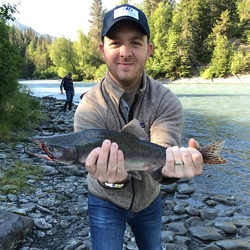

Martinelli
"Grace Nicole" Zio Tony Ranch Pinot Noir 2012
Pleasant surprise here, bigger pinot with a dark cherry-laden nose, touch of forest floor. Some blueberry liqueur that seemed borrowed from the Syrah, other black fruit and soft, wide mouthfeel. Burgun-NOT. Tannins and a fresh acidity holding it together nicely. Impressed me! — 8 years ago
Cakebread Cellars
Cuttings Wharf Vineyard Chardonnay 2015
World class Chardonnay. A manly Chardonnay. Very very good. — 8 years ago
Ghost Clones
Oles Vineyard Petite Sirah 2013
Gardienne des Vignes sources Zinfandel and Petite Sirah grapes from family-owned vineyards in Napa Valley. This 100% Petite Sirah comes from 20-years old bush vines in the Oles vineyard in St. Helena. Owner Russ Oles selected cuttings from extremely old vine plantings to plant his vineyard. Hence the name "Ghost Clones". Dark red. Very attractive nose with blackberries, flowers and spices, slightly Vintage Port-like. Amazingly complex and elegant for this grape variety. Warm and full-bodied with layers of black fruit and a lovely acidity, making the high alcohol perfectly integrated. Long finish. A tremendous effort for Petite Sirah. 2013 vintage, abv 15,6%, 112 cases produced. — 9 years ago
School House Vineyard
Pinot Noir 2006
Rumor has it that the cuttings of SH came from Inglenook, which ultimately came from DRC. Interesting theory. SH has always been an odd duck in Napa. Spring Mt Pinot, that is muscle and elegance in one package. So I'm going with it... Beautiful wine. Elegant and powerful at the same time. Loads of red currant, Asian 5 spice and rose oil. Pure aromas and fruit. Perfumed, exotic and texturally sleek. Minor alc on the finish, but I've tasted many hotter Burgs. What most new world Pinots wish to be! — 10 years ago
Tahbilk
One Million Cuttings Victoria Shiraz 2014
Sweetish for a Shiraz, strong plum undertones. I love this wine, it is perfect with cheese in particular. — 10 years ago
Lyeth
Reserve Grande Fleur de Lyeth Proprietary Blend 2013
We both loved this one! Eric got it from his wine club and gave it to us when we borrowed his go pro =) We had it with sushi because I was too busy to cook and it didn't pair that well but would definitely have it again with something more hardy. Mmmmm... — 10 years ago
Launois Père et Fils
Special Club Brut Blanc de Blancs Grand Cru Champagne Chardonnay 2005
Jeff G's birthday mag after the roll downs were pulled at K&L. From vines planted in the 1950's in Cramant & Oiry, still the source of cuttings for Launois' massal selections. This is a very rich, creamy BDB that goes deep on minerality, even in a fatter vintage. — 10 years ago
Jacuzzi Family Vineyard
Pina Asolo Prosecco Superiore
Pic of jacuzzi grama's passport photo. Yes the jacuzzi family invented the first hot tub-for one of their 13 kids who had arthritis...the first jet/pump was made to sit in a bathtub. Last of 13 died in 1/14 at age 105. There are now 800+ members of the jacuzzi family. They are not winemakers-their neighbor is and borrowed their name and property to honor the family. — 11 years ago







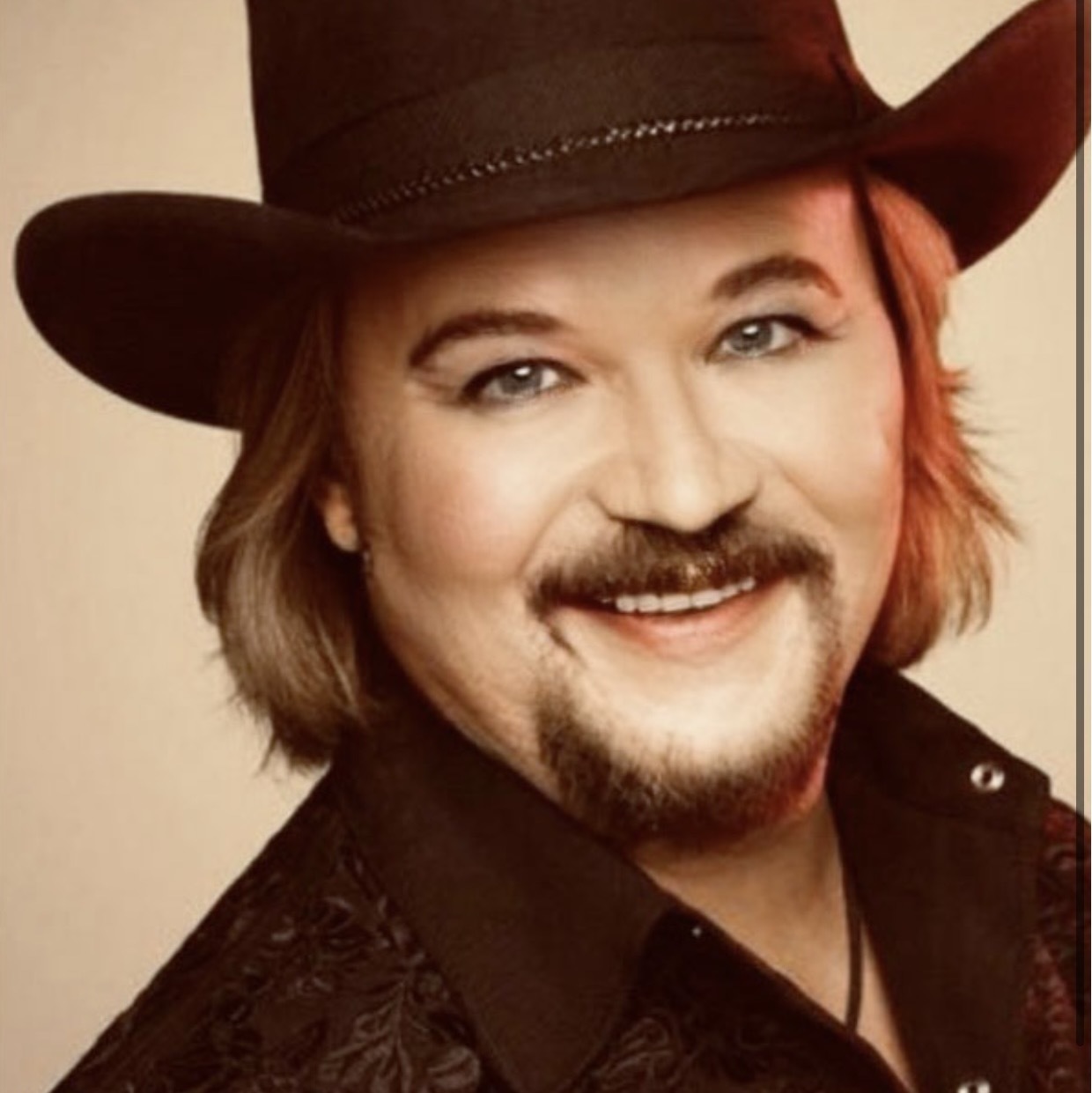


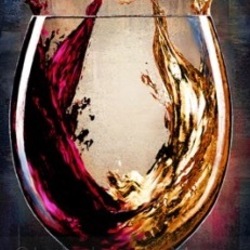









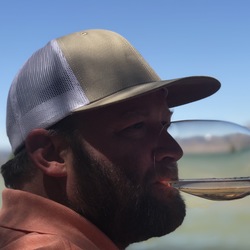


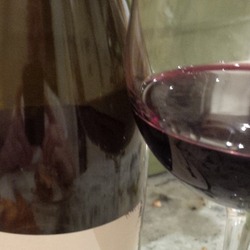




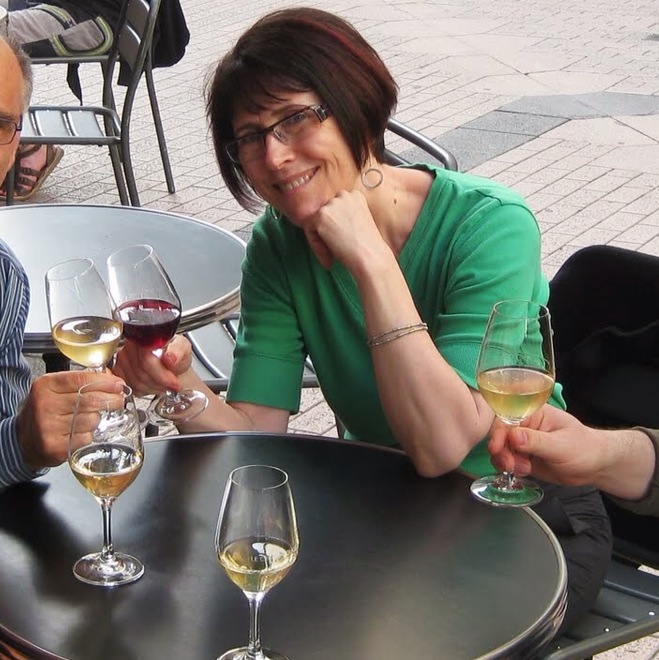
Isaac Pirolo
My original intention today was to find something old world, but also progressive... thinking pet-nat or maybe Cru Beaujolais... but instead I came across this at one third its list price. Sourced 100% from To Kalon Vineyard, so Mondavi it is. Considering what To Kalon reds command, it’s fascinating that the vineyard still has blocks planted to white varietals. The 2014 Oakville District Fumé Blanc is a blend of 79% Sauvignon Blanc and 21% Sémillon. Lots of history here... The name Fumé Blanc was actually a creation of Robert Mondavi in the late 60s. Needing a pseudonym to distinguish his dry, Loire-inspired style of Sauvignon Blanc from the mostly sweet, mostly bad versions that dominated the market at the time, he borrowed from Loire’s Pouilly-Fumé, famous for its dry Sauvignon Blancs. Mondavi never trademarked the name, actually encouraging other producers to adopt the nomenclature as an association with higher quality. Several of these producers continue to bottle the varietal under Fumé Blanc, including Dry Creek Vineyards, Grgich, Ferrari-Carano, and Benziger.
An immediately appealing nose features the signature lemon verbena of Mondavi’s Fumé Blancs. Carries surprising restraint in regard to the fruit and level of manipulation, and is an indication of the superb balance it maintains. Lime zest, stone fruit, slate, and fresh thyme. I wouldn’t pay $40 for it, but this is better than everything under $20. — 7 years ago